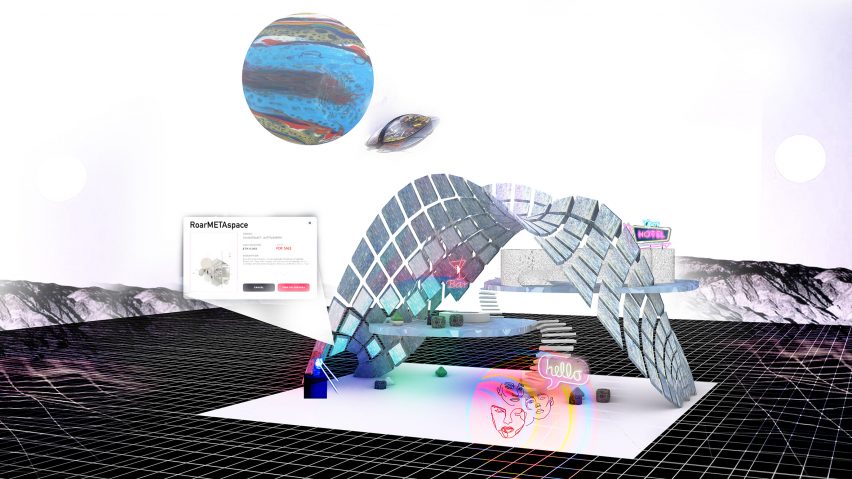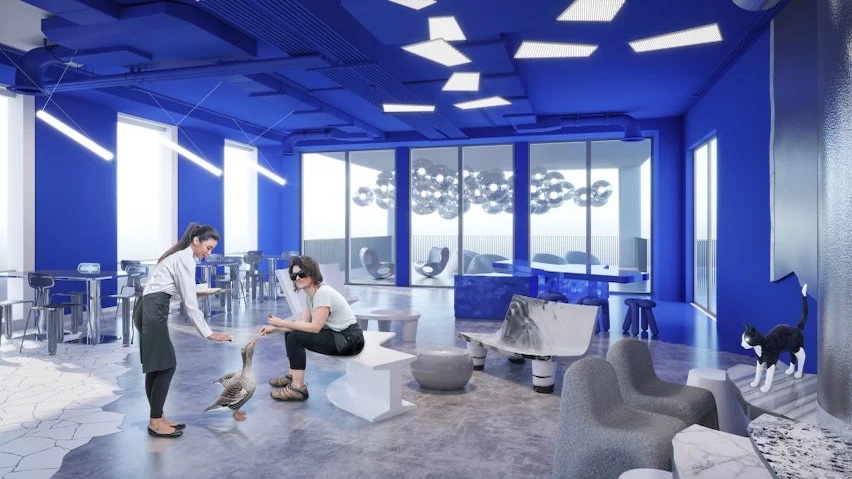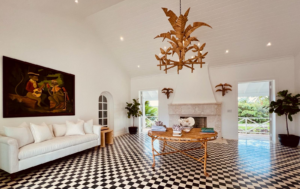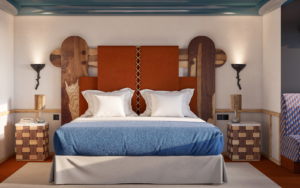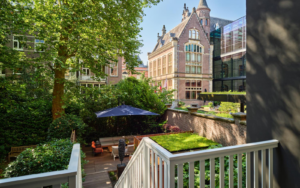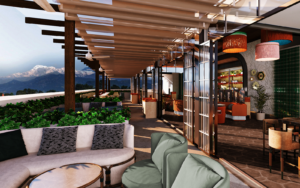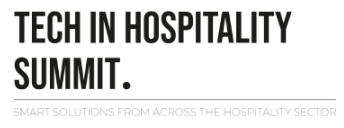Headsets on. Hot off the HIX Talks stage, where he and a handful of visionaries explored why hotels are betting on cyberspace, Editor Hamish Kilburn is himself heading into the metaverse to explore how virtual spaces, in theory as well as reality, could work in harmony with physical hospitality and hotel design…
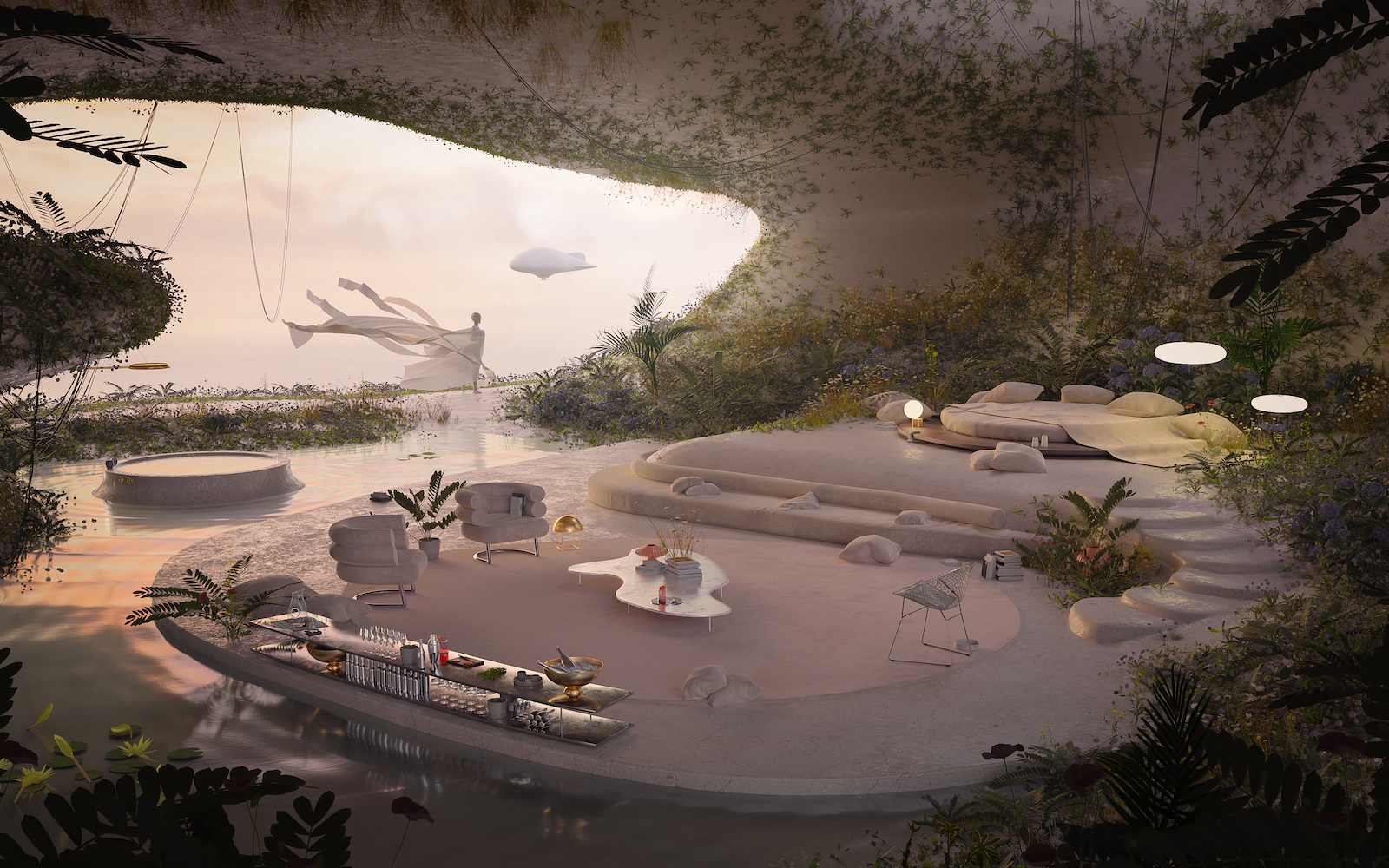
I’ve never been a gamer – it’s just never been a thing I have connected with. During my childhood, years before ‘hotels’ and the ‘metaverse’ were used in the same sentence, the physical act of falling from a tree, mastering the ability to ride a unicycle I got for Christmas one year, or hitting a new skill in gymnastics was much more appealing and exhilarating than levelling up in Crash Bandicoot – no offence to die-hard fans of the game!
The thought, then, of ‘plugging in’ to a virtual world to explore a new era of hospitality – an industry that has forever grown and developed from people interacting in a very real world – isn’t something that naturally excites me. Everything I have read and learned over the years of editing these pages has taught me that we should tread very carefully when it comes to injecting technology into the hotel experience; whatever we invent next needs to be accessible to both a digital and analogue world. Then again, they said the same about ‘online-only publications’, and look how far we have come!
When I was asked recently to moderate a panel discussion, at HIX, to explore this concept in a new light, I’ll be honest, I felt unqualified. Joining me on the panel was interior designer Pallavi Dean, who has bought four properties in Decentraland; Timothy Griffin, who has just launched a new hotel in the metaverse; and Emma Chiu, Gobal Director, Wunderman Thompson Intelligence, whose research in this area is refreshing, extensive and forward-looking.
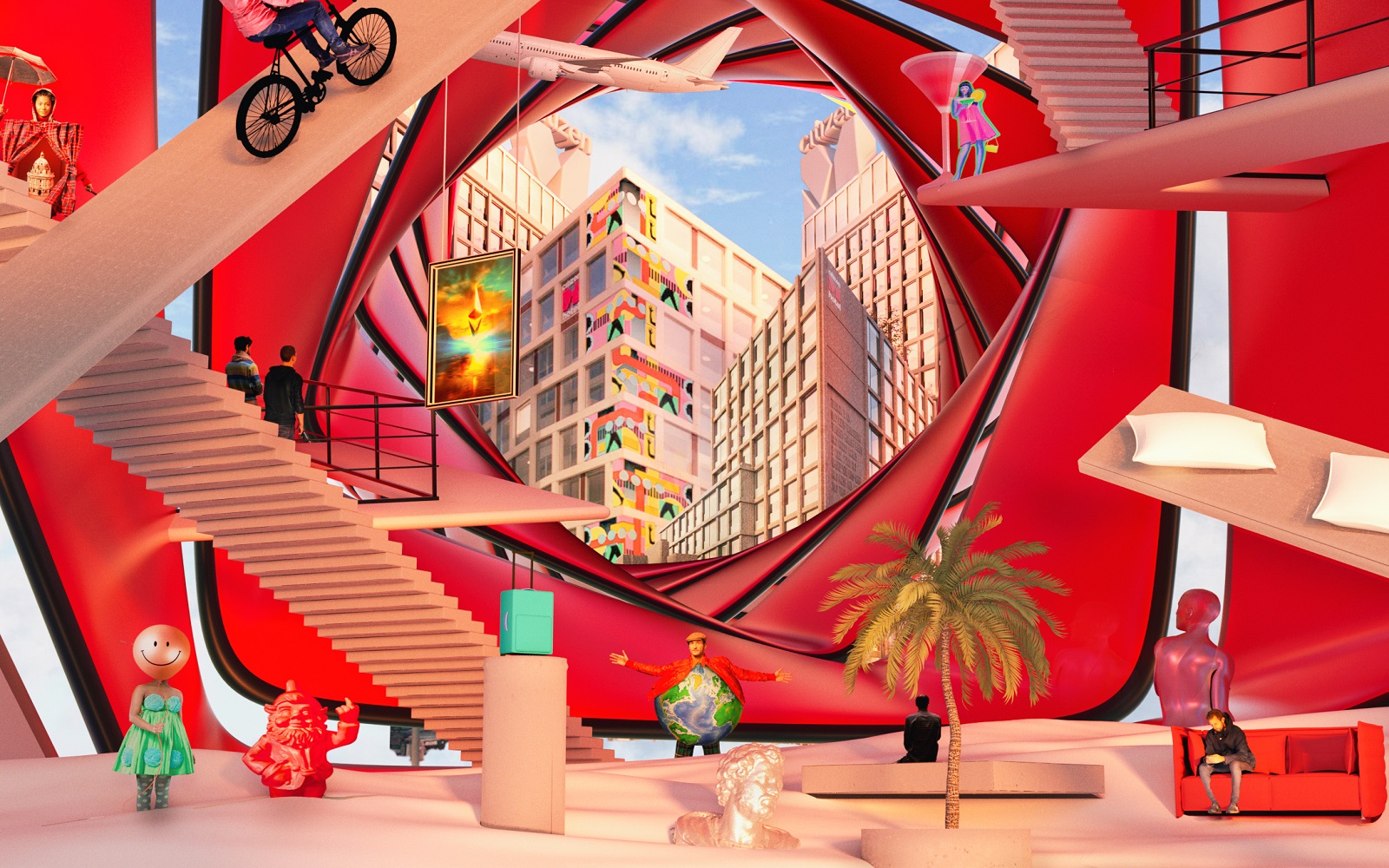
Image caption: citizenM was one of the first hotel brands to buy property in the metaverse. | Image credit: citizenM
Knowing my position – and the limits I have set on how far I think technology should go in the hotel design and hospitality arena – I couldn’t help but feel like I was intruding on a conversation that many tech experts would jump at the opportunity to be a part of. Perhaps it was my hesitation – and natural curiosity – that led me to accept the very kind offer from the show. And, by doing so, I had a complete 180 – I literally changed my opinion on stage – on how the metaverse can elevate experiences in hospitality and beyond.
Given everything going on in the world, it’s easy to forget that there will be new generations that will, by nature, have different demands as well as behavioural traits. Everything evolves and platforms change – some morph while others don’t survive the pace. Life goes on without so much of a question as to whether what we are signing up to is healthy. Take social media, for example. In 2004, the year when I was starting secondary school, Facebook was launched as a new way to connect – it was the largest web development since Tim Burners Lee invented the internet in 1989.
A year later, Bebo emerged allowing users to create the best profiles/image of themselves, join groups and connect with like-minded people. But, unlike Facebook, after hardly any time at all, Bebo became clunky, unfriendly for the user and stuck in the past. On the contrary, Facebook evolved, updated and gave the user what they were demanding. The early Facebook that we all raved about is somewhat unrecognisable to what it is today. But that’s the point: slow, continuous tweaking has ensured that the platform has remained relevant to all who use it. And it’s the same could be said about the metaverse.
Before I take you any further, though, there are two things you need to know about purchasing ‘land’ in the metaverse:
- First, you need to understand blockchains, which are digital databases or ledgers that are distributed among the nodes of a peer-to-peer network. So what does that mean? As a database, a blockchain stores information electronically in a digital format. This is integral to maintain a secure, decentralised record of transactions.
- To own property in the metaverse you have to setup a crypto wallet. This is a space where private keys are stored, keeping your crypto safe and, importantly, accessible. Each metaverse has its own currency that you can convert easily – it’s very safe because the blockchain will trace every transaction. Essentially, you cannot purchase property in the metaverse with hard cash.
And we’re away – hold on to your handsets, it’s going to be a gripping journey of discovery. But first, please listen to the pre-flight safety annoucnement, from Chiu, designed to take away any anticipation around what it is we are actually talking about when we discuss ‘the metaverse’. “Take the word out of the sentence and we are, really, just talking about technology entering a new level,” said Chiu. “Our research started when we were exploring the gaming industry. We were intrigued how it [gaming] was jumping from the traditional video game into something that was more interactive and socially driven. In early 2020, this was the new frontier of gaming. For us, the metaverse is an evolution of technology, and the way we are engaging – it is far beyond gaming.”
“[The metaverse enabled us] to build a hotel that wasn’t bound by the physical constraints of traditional architecture.” – Tim Griffin, Co-Founder, Wellbrook Hospitality.
For a lot of designers, architects and hoteliers who I speak to, the biggest concern around the metaverse is that it will replace, possibly overshadow, the hotel experience as we know it today. Last year, I checked in to LEVEN Manchester, LEVEN’s first hotel, located in the heart of a thriving neighbourhood and designed by Giffin and his team at Wellbrook Hospitality. The space is uniquely residential, tactile and multi-layered. When I then heard that the next hotel to open world be in the metaverse, the decision at the time felt out of touch from the warm hospitality experience that LEVEN offered. “We saw this as an exciting opportunity to extend our brand as a ‘playground’ where we can break all kinds of rules. The ethos behind LEVEN is to create spaces where people can be themselves and enjoy our hotels and spaces on their own terms, and where better to do that than in the metaverse,” Griffen explained. “We saw it as a way to supercharge what we are doing in the real world – we were able to build a hotel that wasn’t bound by the physical constraints of traditional architecture, and it aligned with our progressive approach at Wellbrook Hospitality.”
“If you’re an architect or a designer then you’re already in the metaverse.” – Pallavi Dean, Founder, Roar.
-

- Image caption: Roar, the studio founded by Pallavi Dean, has made a ‘home’ in the Metaverse. | Image credit: Roar
This headline-grabbing topic has divided opinions since ‘Oculus’ became a common term. Aside from technology moving into unfamiliar territory, the thought of interior designers and architects working – not just socialising – in the metaverse has, at times, seemed unrealistic. But Dean, who is a prominent design figure based in Dubai, chooses to look at the topic through a different lens. “This is nothing new,” she said passionately. “If you’re an architect or a designer then you’re already in the metaverse – I’m talking about everything from mataport scanning to using VR headsets. This is a three-dimensional version of web 2.0 as we know it. Obviously, when it started to gain traction, I decided that I wanted to be part of it. I couldn’t ask my clients to invest in it if I wasn’t prepared to myself. We have set up a showroom, which has sparked interested, and we have just designed our first art gallery for a client that is not local to me, which wouldn’t have happened without taking that step. I think, for me, my advice to other designers would be not to be frightened. Modelling and designing in the metaverse is the easy part!”
For an industry that has always found creative solutions within perameters of possibility, entering the metaverse may sound like a free-for-all. But it would be wrong to think that there are no rules in cyberspace, as Dean explained: “The metaverse is very low-fi – think minecraft – there are constraints. We are in the very early days of what this could be, which makes it exciting.”
“I love the idea that eventually [the metaverse] will latch on to what we are talking about with web 3.” – Emma Chiu, Global Director, Wunderman Thompson Intelligence.
The other pre-conception around the metaverse is people relating it to a location. In the metaverse, there are no co-ordinates as to where you are on earth. Instead, as Chiu explains in her research, we should consider the metaverse as a platform. “People think it’s a place where they can go to, but we like to think of it as a platform where there are multiple worlds that can be explored,” she said. “I think of it as a place where you are able to be part of a community – it’s not a singular experience, and it is ever-evolving. In just one year, things have changed so much. Now, all of a sudden, there are live events, social spaces and purchases you can make. I love the idea that eventually it will latch on to what we are talking about with web 3, to give the power back to the users in form of ownership.”
A wise man, tech expert Jason Bradbury, once told me that social media has entered into an era fuelled by the ‘democratisation of everything’, which is a sexy way of saying that that anyone can have a platform. Take Instagram and TikTok, for example. With just few taps and swipes you are communicating to a mass audience. The idea of the metaverse is just stretching that ideology one step further to challenge the traditional ownership model when it comes to the internet. “It’s not going to be one company owning the metaverse,” Chiu added. “Think of it a platform that you can turn it into whatever you want that to be, whether that be hotels, social spaces or places where people can experience something they cannot in the physical world.”
“For me, the opportunity to be on the panel was a way of cutting through the noise to understand, beyond the PR storms, the purpose away from the gimmicks.” – Hamish Kilburn, Editor, Hotel Designs.
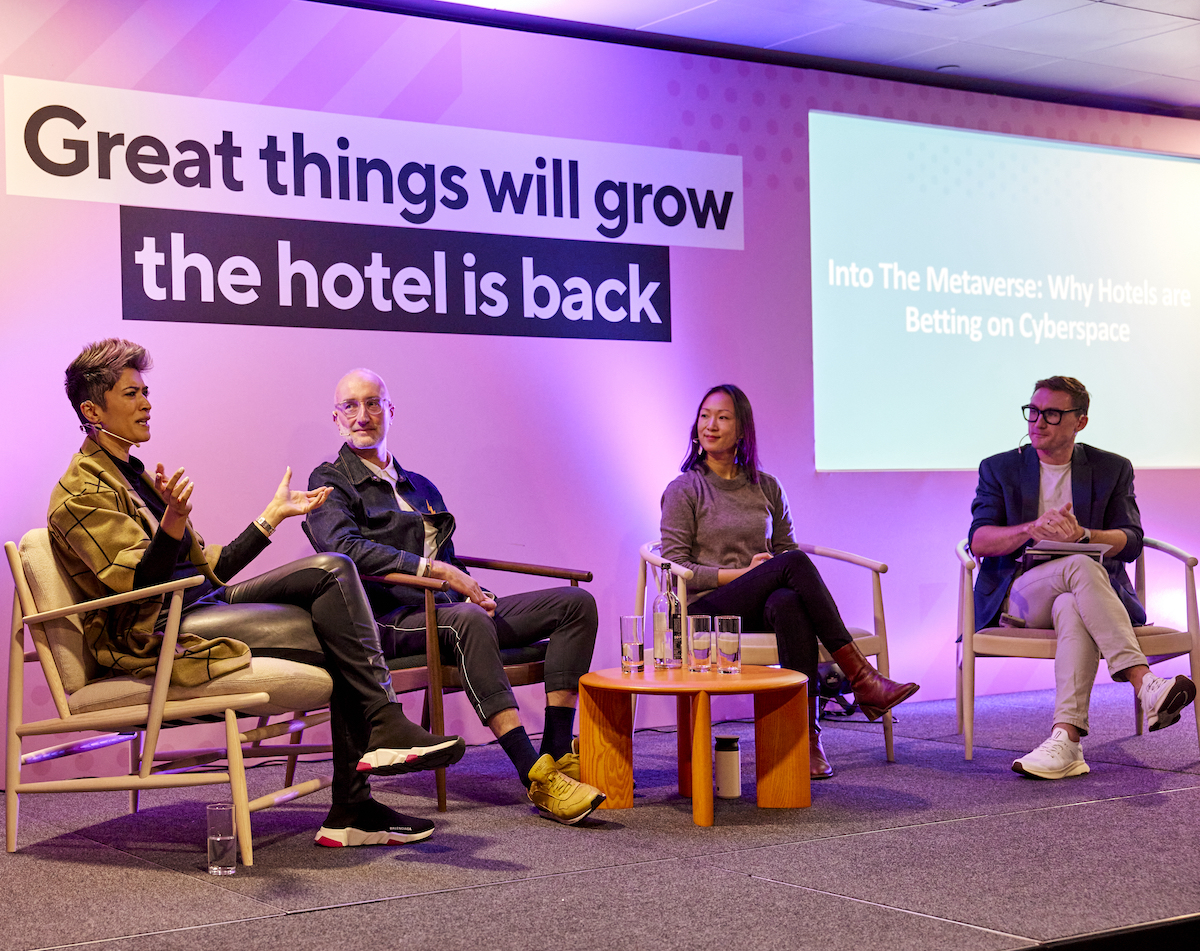
Image caption: Pallavi Dean, Tim Griffin, Emma Chiu and Hamish Kilburn exploring the metaverse on the HIX Talks stage. | Image credit: HIX
Relating this back to a living, breathing case study, I was interested to understand how the digital and physical married up for a hotel in cyberspace. “Through design, you can supercharge the experience in the metaverse,” added Griffin. It can be otherworldly and more dynamic than what we can create in the real world. Our biggest challenge, though, has been how we translate a physical hotel into the metaverse. We found threads of real life that we were able to inject into the online experience. Whether that’s using the same artists that we have used in our physical hotels or creating NFTs. We have really tried to blur the boundaries between retail and hotels. E-commerse is, to an extent, driving our evolution in the metaverse, because it has opened the opportunity for the guest to experience and access our merchandise in the metaverse – we are able to amplify the brand in an authentic and meaningful way.”
My biggest problem I have with the metaverse is how much it is flippantly used in conversations. The opportunity to be on the panel was a way of cutting through the noise to understand, beyond the PR storms, the purpose away from the gimmicks. “I have heard, wrongly, people say that the metaverse is immersive,” said Dean. “In its current format, it is two-dimensional, but it will be immersive when we have developed a second skin with haptic feelings. Right now, though, the metaverse is, put simply, an extension of your physical experience.”
Having peered through the vortex to see what’s on the other side – its not a black hole after all – and following an honest live conversation with three leaders who are all on this journey together to make sense on where the next mutation in technology will emerge from, I am no longer concerned about seeing the metaverse merge into hotel design and hospitality. Unlike the topics around sustainability and general urbanisation, the metaverse feels infant, untamed and charged – like a wild ball of energy. Adopted sensitively, and handled with care, we might even be able to utilise hardware and software together to understand changing social behaviours in order to design more intuitive spaces in the real world. For now, at least, the future is… unwritten.
Main image credit: LEVENverse

